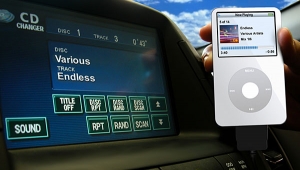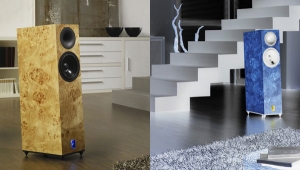| Columns Retired Columns & Blogs |
If something sounds good, I like to know why it sounds good. I think it's very important to know the acoustics of my own room and to know how different things affect it, because the more I know about what a certain change will do, the more I can focus only on those things that have the greatest probability of sounding good. The more optimized my room is, the better the sound I get, and the more involved I feel in the music. In terms of equipment, auditioning is, of course, always a must, but if you know as much as possible about what you're auditioning, you can greatly cut down the number of auditions you have to do. The technology behind equipment is not as important to most people; it is to me simply because I'm interested, but one could argue that's beside the point as far as sound quality and musical enjoyment are concerned. My point, basically: Know your room, and know what it is doing, and I think you will undoubtedly have a greater chance of success than if you rely on "mystery" and hope you end up with good sound.


























